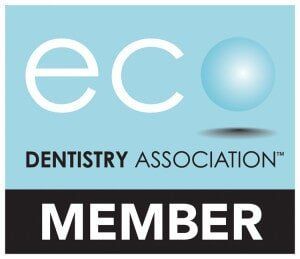Dental Bone Graft in Byron Bay
- AHPRA-Registered Dental Professionals
- EC Dentistry Association Member
- Mercury-Free & Fluoride-Free Care
Request An Appointment
Thank you for contacting Bytes of Byron–Bio Holistic Dentistry .
We will get back to you as soon as possible.
Oops, there was an error sending your message.
Please try again later.
Byron Bay Dental Bone Graft
A dental bone graft may be recommended when there is insufficient bone in the jaw to support a dental implant or to preserve the site following tooth loss. At Bytes of Byron – Bio Holistic Dentistry, we perform bone grafting procedures from our Byron Bay and Lennox Head clinics with a focus on clinical need, structural integration, and biocompatibility.
Bone volume can gradually decrease over time when a tooth is lost, particularly in areas of the jaw that bear the most pressure. Grafting helps rebuild or reinforce these areas to provide a stable foundation for future restorative treatments.
Each case is carefully assessed using diagnostic imaging to evaluate the extent of bone loss and determine the most appropriate grafting method. The procedure is often performed prior to or in preparation for dental implant surgery but may also be used in other cases where bone preservation is clinically indicated.
Patients receiving a dental bone graft will be supported through each phase of care, from planning to post-operative review. Healing times vary depending on the graft type, site location, and overall health. To find out whether bone grafting is suitable for your treatment plan, contact our team on (02) 6680 8066.
Support Implant & Structural Stability
After a bone graft, the body gradually begins building new bone around the area. This healing process takes time—often several months—as the graft material slowly integrates with your natural bone.
During this period, follow-up visits are usually scheduled to check how things are progressing and to help decide when the next stage of treatment, such as implant placement, might be possible. Your dental team will also provide clear post-operative instructions to help support healing and reduce the risk of things like infection or discomfort.
How well a bone graft heals can be influenced by a few different factors, including your overall health, oral hygiene, gum condition, and how much pressure is placed on the area while it heals. In some cases, you might be asked to adjust your diet temporarily or use antibacterial rinses. Occasionally, extra steps like socket preservation or guided tissue techniques may be suggested if they’re considered helpful for your specific situation.
Not everyone needs a bone graft before getting an implant, but it can be an important step when more support is needed in the jaw. A consultation, along with scans or imaging, will help your dentist decide if bone grafting is right for you. If you’d like to know more or arrange an appointment, you can reach the clinic on (02) 6680 8066.
Frequently Asked Questions
Will I be able to feel the grafted area in my mouth?
You might notice some mild swelling or a change in how the area feels during the early healing phase, but most people don’t feel the graft itself. It’s placed beneath the gum line and doesn’t sit directly in the soft tissue space. As healing progresses, any awareness of the area usually fades. If something doesn’t feel right, it’s always best to check in with your dentist.
What happens if the graft doesn’t heal properly?
If a graft doesn’t heal as expected, your dentist will assess the area and recommend the next steps. This might mean giving it more time, replacing the graft material, or using a different technique. Graft failure isn’t common, but it’s something your clinician will monitor at follow-up appointments. Early signs are usually picked up quickly, so staying on track with reviews is important.
Do bone grafts always lead to dental implants?
Not necessarily. Bone grafts are often used to prepare for an implant, but in some cases, they’re done to preserve bone after a tooth is removed, even if no replacement is planned right away. Your treatment goals, oral health, and longer-term options will all factor into whether an implant is the right next step.










